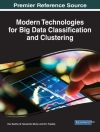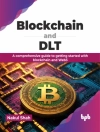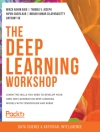This book is a venture that, as far as we know, has never been tried before. It is a more than a two- decennial overview of the evolution, status and future of Information and Communication Technologies (ICT) transgressing from technology to economy, sociology and its way of changing our life and of developments, which might affect our future personally and as society.
The individual papers were delivered as invited keynote lectures at the the annual IDIMT Conferences (see www.IDIMT.org) from 2000 to 2020. These lectures were designed to satisfy the interested non-technical audience as well as the knowledgeable ICT audience, bridging this gap successfully without compromising on the scientific depth.
It offers an opportunity to analyze evolution, status, challenges and expectations over this dramatic period. Additionally the multidiscipline approach offers an unbiased view on the successes and failures in technological, economic and other developments, as well as on the astonishing high quality of technological forecasts.
Seldom has a single technology been the driving force for such dramatic developments, looking at the intertwined developments as the computer becoming a network and the network becoming a social network and is even changing the way, the world changes.
Economically documents emphasize the fact that the three top value companies in the world are ICT companies.
Many deep-impact innovations made in this periods are reviewed, with information technology enabling advances from decoding the genome to the Internet, Artificial Intelligence , Big Data, Deep computing, Robotics to Communication technology to mention a few.
The impact literally reaches from on the bottom of the sea, from fiber optics cables communications, up to satellites, turning the world into a global village and continue to do so.
Discussing the scenario of the last 25 years, we have the privilege to discuss this in the presence of eye witnesses and even of contributors to these developments to which these personalities contributed and enabled these lectures. Special appreciation for their engagement and many valuable discussions goes 'in parts pro toto’ to Prof. Gerhard Chroust and Prof. Petr Doucek and their teams.
O autorze
Univ-.Prof. emeritus, Dipl.Ing. Dr. Gerhard Chroust, M.S.
is an Austrian systems scientist and Professor Emeritus for Systems Engineering and Automation at the Johannes Kepler University of Linz, Austria.
He is a Board Member of the Austrian Computer Society (OCG). He is an Honorary Member of the Austrian Society for Informatics (ÖGI), a Fellow of the International Federation for Systems Research (IFSR) and an Honoray Member of the Bertalanffy Center for Study of Systems Sciences (BCSSS).
He is the co-founder (1993) and since then the Programme Chair of the IDIMT Conferences.
Chroust is an authority on formal definition of programming languages, system development processes, software quality standards, process assessment, and on cultural differences in system development.
His current key research is in Human Aspects, Cultural Differences and Systemic Aspects of System Development and Disaster Management, and Representation and Enactment of Software Processes.
1964 he received a Master of Science (Electrical Engineering ) from the Technical University, 1965 a Master of Science (Computer Science) from the University of Pennsylvania. In 1975 he was awarded a Ph D (Computer Science) from the Technical University Vienna and in 1980 a Habilitation (Computer Science) from the Johannes Kepler University Linz.
From 1966 to 1991 Chroust worked at the IBM Laboratory Vienna, doing research and development in Programming Languages, PL/I, Mikcroprogramming, Formal Definition of Programming Languages, Vienna Definition Language, Software Engineering Environments ( ADPS) and Compiler Construction
From 1992 until 2007 he was tenured Professor and Head of Institute for 'Systems Engineering and Automation’ at the Johannes Kepler University of Linz mainly working on Software Engineering, Process Models and Environments, Computer Assisted Cooperative Work, Systems Theory, Human and Cultural Aspects of Systems Engineering.
Since 2007 he an Emeritus of the university. His current interests are: Human and Cultural Aspects of Systems Engineering, Process Models and their Enactment, Systems Science and Disaster Management
He has published 10 authored books, edited/co-edited approx. 60 proceedings, written approx. 220 scientific publications and approx. 300 other publications.
Chroust is bearer of the Silver Medal of Honor of Upper Austria.












